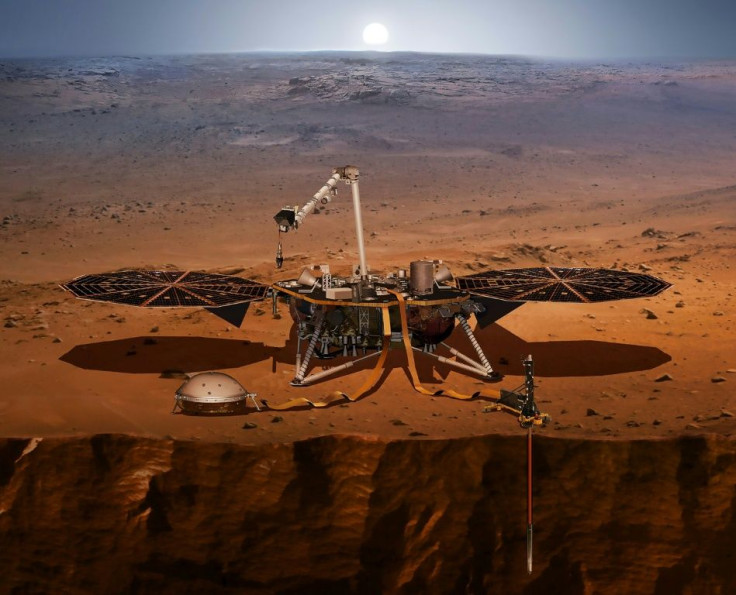SpaceX Mars Rocket Starship A 'Moral Catastrophe', Astrobiologist Warns

The respectful explorer's adage,"Take nothing but pictures. Leave nothing but footprints. Kill nothing but time," might as well apply to humankind's forthcoming exploration of Mars.
SpaceX's goal is to land the first humans on Mars by 2024. The massive spacecraft SpaceX will use to make the nine-month long voyage to Mars will be Starship, a fully reusable second stage and space vehicle currently being tested in Texas as a prototype. Later versions of Starship will be able to transport 100 people at a time to the Red Planet.
This is the Vision.
But the reality of humans colonizing and making Mars the "New Earth" might inadvertently destroy any extraterrestrial life -- most likely microbial life -- already making the Red Planet its home. This fear of overwhelming human contamination of Mars' pristine ecosystem, which is being likened to a moral catastrophe, was voiced by University of Hertfordshire astrobiologist Samantha Rolfe in her essay published in The Conversation.
Rolfe criticized the contention by SpaceX CEO Elon Musk that bringing humanity to Mars won't damage any organisms living there because they’re in hiding beneath the surface. Musk, however, later contradicts this statement by saying humans will need to live underground on Mars to protect themselves from the lethal cosmic radiation bombarding this airless world every second.
“Regardless of the thrill and feelings of hope this kind of adventure brings, just because we can do something, doesn’t mean we necessarily should, now or in the future,” wrote Rolfe
She contends things will probably get messy pretty quickly if guidelines aren’t put in place to protect Martian orgnisms before people dig up Mars.
Rolfe noted "there is a risk that microbe-ridden humans walking on the red planet could contaminate it with bugs from Earth. And contamination may threaten alien organisms, if they exist. It may also make it impossible to figure out whether any microbes found on Mars later on are martian or terrestrial in origin."
She pointed out the human exploration of Mars will make the survival of humans its first priority. Nothing has been said of protecting the "true Martians," or the microorganisms now living on that hostile planet.
She said that while it's possible a rigorous planetary protection plan might one day be crafted to protect these true Martians, "pushing the boundaries of human exploration is more important than the consequences of that exploration."
And the consequences will be the degradation and destruction of whatever forms of life now exist on Mars. Rolfe added Musk doesn't seem worried about contamination.
She also correctly points out the risks of contaminating Mars and damaging the environment are very real.
"I would argue that it is our moral obligation to prevent such damage. I hope SpaceX is putting as much thought into this as it has into its launch vehicles, and I would like to see this become a priority for the company."
© Copyright IBTimes 2024. All rights reserved.





















